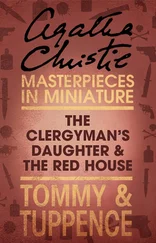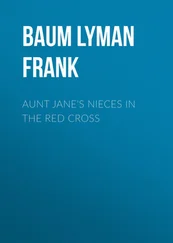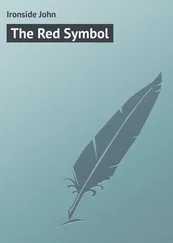—
I am playing outside by myself one morning when my nurse approaches, kisses my forehead, says, Come, we must put on different clothes now . And in these different clothes I am driven in a state car to an official building in Moscow, a large hall with a ceiling like a reaper’s blade overhead, where many adults, some of them acquaintances and relatives I recognize, stand in hushed black poses. I am taken by the hand, led through ghoulish, whispering silhouettes to a long black box the length and width of a grown-up person. The box has a carved lid on hinges, propped open. I see blood-red silk, unfamiliar clothing, and my mother’s ghost-white face—
I step back and begin to scream.
Returning with my nurse to Zubalovo (our dacha in Usovo, less than thirty kilometers outside Moscow, which all my life had been the happiest of places), I discovered that my father had ordered the tree house that Mother designed for Vasily and me in the woods by the playground dismantled. The playground itself was gone too, nothing left but a patch of sand on the ground to suggest it ever existed.
Within weeks men in Party work clothes were completely rebuilding parts of the house, painting and reconfiguring, one by one stripping the rooms she’d inhabited of their memories. It was all state property now, maintained at government expense; and the people who worked in our households were all employees of the secret police.
The systematic process of my mother’s erasure had begun.
It was the same in Moscow, where my father exchanged our former apartment for a new one on the first floor of the Senate building in the Kremlin. Not a true residence but a cold formal office structure posing as a dwelling for warm-blooded humans, the walls so thick that small voices attempting to reach from one room to the next often died before arriving. Other than a single large photograph of my mother in the dining room, the only mementos of her that remained were relegated to my bedroom. I spent much of my time reading and drawing in the company of these silent friends, while my nurse did her sewing in her room next door. My schoolwork I did at the dining table under the lonely gaze of the woman whose living face was already becoming, to my confused recollection, a kind of shade of itself.
Beneath that same heartbroken stare my father and his regular group of wine-swilling underlings dined most evenings, the meals always beginning at six or seven and lasting till midnight. At which point without fail the vozhd was driven—in one of three cars whose routes changed nightly for security reasons—to the new dacha he was having built, just for himself, in Kuntsevo, twenty minutes away.
But merely a new residence could never be enough for a man seeking to dig the deepest possible moat between himself and the past. What was required was a house cleansed of all personal history. To this end he would have Kuntsevo rebuilt every summer for the rest of his life, keeping only one constant: the single large room on the ground level where he lived and worked. The dining table heaped with books, newspapers, documents was long enough to fit the entire Politburo, with a small clearing at one end for eating when alone. The large sofa doubled as his bed, with telephones on either side. The china cabinet was always stuffed with his various medications, which he insisted on picking out himself every morning and evening, because there was no doctor in all of Russia he believed he could trust…
This was the room in which—perhaps he already knew—one day he would die.
—
My father lived apart from us. That was his choice. By now in his fifties, his working hours increasingly strange and relentless. He could be remote, issuing detailed written instructions to his faithful bodyguard, Vlasik, on how not to spoil me.
But he was not invisible. Sundays when the weather was good he would still come to Zubalovo. On his shoulders he would carry me off the walking paths, away from the shrouded yes-men who followed everywhere, and into the forest of tall ghostly birch trees that he preferred to most human company. Hidden there like two castaways, we would sit on the leaves and enjoy a picnic lunch together.
At such times I noticed a change in him: his shoulders relaxed; his smile came more freely. Of course, I had known him to laugh once in a while when dining with his coterie of ministers—he was not without a sense of humor of his own kind, I suppose. But even as a little girl I would notice a jagged edge buried just beneath the surface of his public laughter, and how the sound of it put all those men in his presence on edge too. Alone with me, however, he seemed free of any need to prove or challenge, and consequently our infrequent visits together in those early years after my mother’s death always seemed to pass more quickly than I wanted.
He still called me his Housekeeper then.
And how is my Housekeeper? Is Housekeeper getting enough sleep and minding her nurse? Housekeeper, would you agree to pass your poor papa another piece of that good brown bread? Your poor tired papa is very hungry today, practically starving, don’t you see? Because he doesn’t have his little Housekeeper to take care of him nearly enough.
—
Then he might be gone again for long stretches, sometimes whole summers, during which we communicated only by letter:
Hello, Little Sparrow Hostess!
I’m sending you pomegranates, tangerines, and some candied fruit. Eat and enjoy them! I report to you, Comrade Hostess, that I was in Tiflis for one day. I was at my mother’s and I gave her regards from you. She gives you a big kiss. Well, that’s all right now. I give you a kiss.
From Svetanka-Sparrow-Hostess’s wretched Secretary, the poor peasant J. Stalin.
Hello, my dear Papochka,
How do you live and how is your health? I arrived well except that my nanny got really sick on the road. But everything is well now. Papochka, don’t miss me but get some rest and I will try to study excellently for your happiness.
Your Svetanka
He created an imaginary friend for me named Lyolka. Or at least he insisted that she was my friend. Why wouldn’t she be? Lyolka was perfect in every way. She was always doing the most extraordinary things—things, my father advised, that I would do well to imitate.
Once he added a little drawing of my doppelgänger, saying it was amazing how alike we were. The girl in the drawing had braids and a snub nose and a large smiling mouth and freckles. She looked nothing like me.
Lyolka became my secret enemy.
To My Hostess Svetanka:
You don’t write to your little papa. I think you’ve forgotten him. How is your health? You’re not sick, are you? What are you up to? Have you seen Lyolka? How are your dolls? I thought I’d be getting an order from you soon, but no. Too bad. You’re hurting your little papa’s feelings. Never mind. I kiss you. I am waiting to hear from you.
Little Papa
—
It is summer. Another letter: an invitation, finally, to join him in Sochi for a couple of weeks. Will Lyolka be there?
—
Down by the barnacled rocks where the Black Sea never stops pounding, Papa plucks a sea urchin out of a tidal pool and turns it over to show me its gummy, feminine mouth. He says to be careful of the sharp spines but not to fear them. Remember, Little Sparrow, he instructs me, there is always a part of every creature that Nature fails to protect. To show what he means, hardly moving his arm, he grinds his thumb into the soft exposed flesh with such pressure that it breaches the glistening buttery muscle and, with a sickening crack, splits the spined shell on the other side.
Papa, you’re bleeding! I cry out.
Читать дальше












